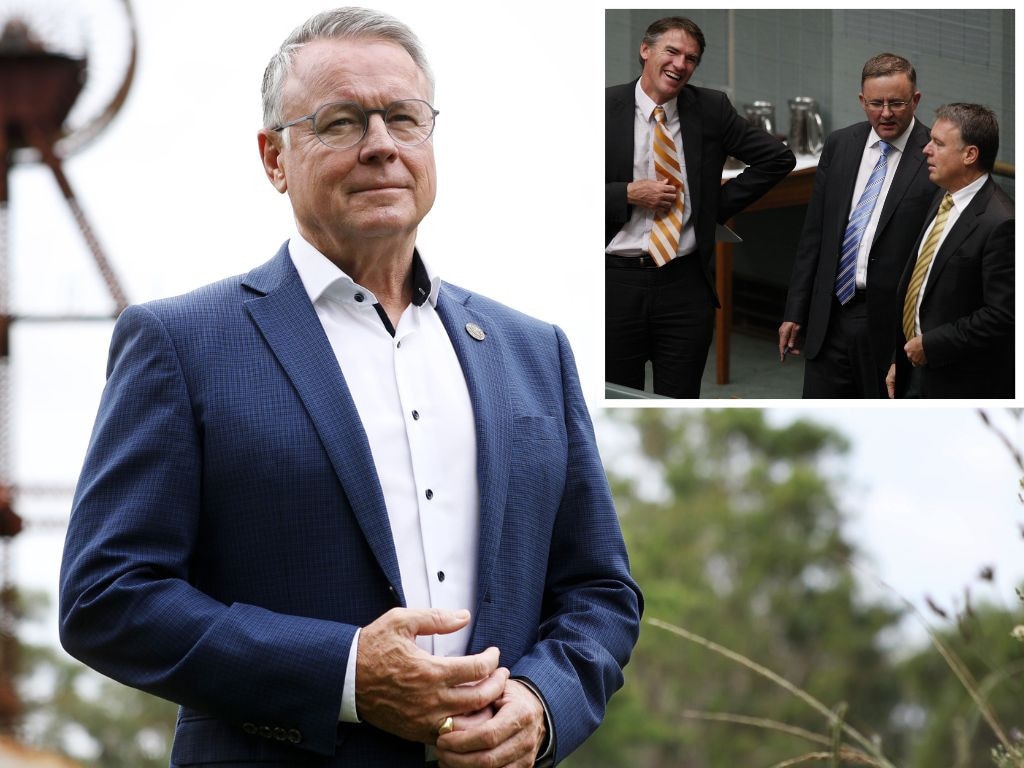Peter Dutton must deliver alternate vision as Australia sleepwalks towards minority government

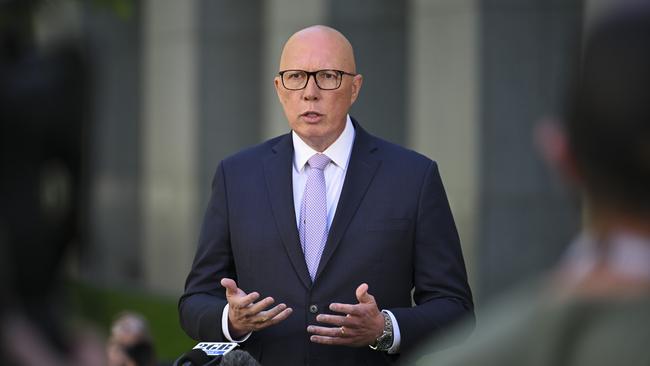
Australia is sleepwalking into a minority government. Every omen points to a diminished country, a weaker executive and parliament, and an electorate bent on denial for as long as possible of the realities transforming global economics and geostrategy.
The next Australian parliament will confront structural decisions unseen for decades – arising from chronic deficits, misguided spending priorities, an inefficient tax system, weak productivity, the imperative to increase defence spending, untenably high energy prices, an over-regulated workplace and ongoing inflation problems.
The polls are currently translating into minority government. The last such experiment saw the destruction of the Gillard prime ministership, the conclusion being that the ability of minority government to meet the challenges of the times is improbable in the extreme.
The likeliest result is a minority Albanese government based on confidence being delivered by a group of Greens and teals, the upshot being a policy shift to the left. The prospect of a second-term Albanese government still pledged to big spending, tax increases via bracket creep, renewable energy, environmental protection, trade union concessions and an inadequate defence budget – a variation of its first term – means rising public dissatisfaction and substandard economic outcomes.
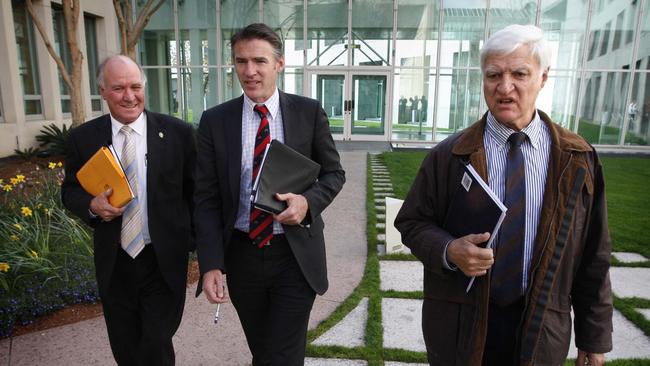
But consider the alternative: a Dutton minority government, an idea that is rarely canvassed. Yet if Peter Dutton becomes prime minister, it is far likelier to be in a minority capacity. As a minority PM, Dutton would be in a far weaker position than was Tony Abbott when he won in 2013. Denied a majority in both the House of Representatives and the Senate, Dutton would battle to legislate even a fraction of his agenda.
His IR agenda, restoring the Australian Building and Construction Commission, modifying Labor’s workplace laws, energy policy changes, spending constraints, tax changes, security laws and productivity innovations would all be at risk of defeat or major surgery. His nuclear policy would be dead from the start given his inability to remove the nuclear ban. As a minority PM, Dutton would be under political siege from day one – from Labor, the Greens and most teals, enraged that Dutton had been able to form a government.
Outside the parliament the spectrum of anti-Coalition interest groups would coalesce against Dutton – from the trade unions, the environmental, education, welfare, professional and managerial classes, the culture sector, identity politics minorities and progressive media. The cultural weakness of the Coalition would be exposed again, as it was under Scott Morrison.
Recall that the best thing that ever happened to Abbott – though he didn’t accept this at the time – was losing out to Julia Gillard in the post-2010 election bid to form a minority government. As a minority PM, Gillard was able to legislate a big agenda but she lost the politics completely, with Abbott having to wait three years but winning in 2013 with a comfortable majority in his own right.
My 2014 book Triumph and Demise on the Rudd-Gillard era included an analysis of Gillard’s doomed venture. Her political adviser, John McTernan said: “All of the flack of minority government was sucked into her prime ministership. In my view minority government became highly damaging for her.”
Former minister Greg Combet said: “The community felt we were running agendas that were not our own. They were seen as somebody else’s. We passed a lot of legislation but we didn’t get credit for the things we did.”
Chris Bowen said the lesson for Labor was “we must govern alone or not at all” – his point being don’t make a formal alliance, a conclusion Albanese accepts with a passion born of experience.
The idea of a minority Albanese government tied into dependency on the Greens – based on the numbers as distinct from any formal alliance – would be a recipe of political poison for Labor. When Labor and the Greens are locked into even loose governing arrangements then Labor is contaminated by a party its own senior figures concede is politically extreme and morally flawed.
The existence of an Albanese minority government would give Dutton a rich political target and the chance, like Abbott, to win a strong majority at the subsequent poll. This invites the speculative conclusion: whatever party, Labor or Coalition, that forms a minority government after the 2025 election will be destined to lose the subsequent election.
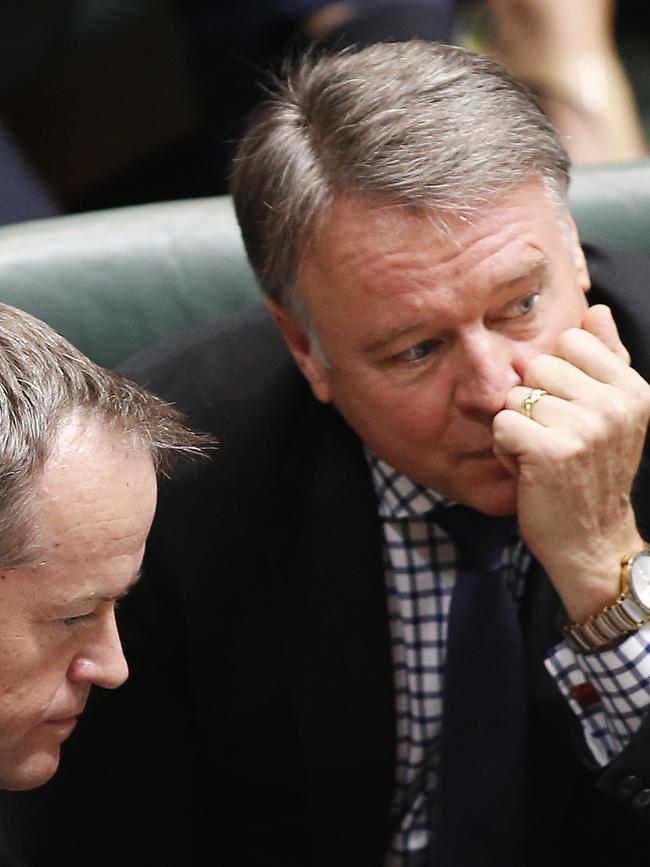
In his article on this page on Tuesday, former Labor minister Joel Fitzgibbon said John Howard, Bob Hawke or Paul Keating would struggle to implement their reforms today, the point being that support for the main parties is weaker and power-sharing minority government is anathema to our political culture and partisan conflict. The story of the present is the absence of an ascendant leader. Neither Albanese nor Dutton can establish a political ascendancy. Yet it is the ascendant leader who drives politics and is the source of all national progress.
Without the ascendant leader, the country stagnates, unable to meet its challenges.
Albanese’s 2022 win was narrow and he has not built upon the beachhead he secured.
Dutton, defying the trends, has united the Liberals and made the Coalition competitive, an immense achievement.
But Dutton, in one term, cannot establish an ascendancy over Albanese, the upshot being a divided polity but with incumbency remaining an advantage. Many voters disillusioned with Albanese will still vote for him – and while many voters will leave Labor they won’t shift to the Coalition but will spray across the minor parties and independents.
A vote against Labor won’t be enough to deliver a Dutton victory. The Liberals are not strong enough. Their party is not match fit – their state divisions in Victoria, South Australia and Western Australia are depleted. Dutton’s popularity is weak in the teal seats. While leadership conviction has enhanced Dutton’s profile, he has yet to be established as a leader with strong economic credentials.
Too much of the opposition’s policy agenda remains to be tabled, creating the suspicion, energy aside, it will be a “small target” strategy. Liberals deny this and we shall see. But a small-target strategy won’t deliver an election win in May. Indeed, there is a far bigger test for Liberals in the third year since their 2022 defeat – it is whether they have the policy and intellectual framework to offer a persuasive case to the public on their own merit.
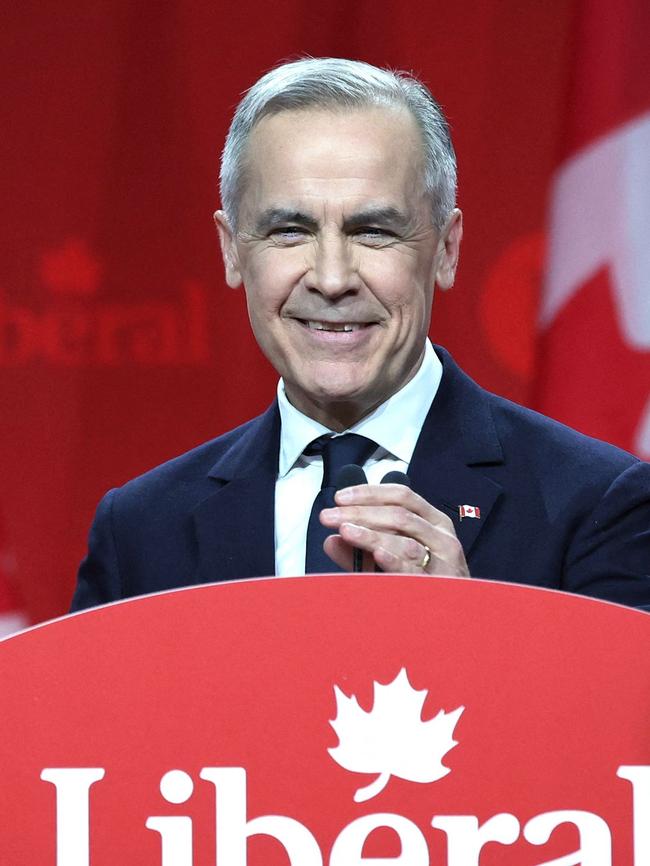

There is still little sign of it. Forget Labor; what are the Liberals offering? There is no evidence they have persuaded the public on the need for spending restraint, tax reform, workplace reform or a productivity revival.
Newspoll this week showed the public voting 83-12 per cent backing greater government spending to help people with cost-of-living pressures. This is what Labor intends in the budget and it will be popular.
What do the Liberals intend?
The flaw in the Coalition case is that while people have plenty of reasons to vote against Labor, they have far fewer reasons to vote for the Coalition. While opposition Treasury spokesman Angus Taylor has made a series of forensic economic speeches correctly prioritising the need for supply-side reform, it is far from apparent how this translates into an appealing economic agenda for the election. Yet the economy is the central issue.
Consider the conundrum. Newspoll in mid-February had only 34 per cent saying Albanese Labor deserved to be re-elected – dismal stuff. Yet this week Newspoll had people saying 55-45 per cent they were “not confident” Dutton was ready to govern and among women it was an alarming 61-39 per cent expressing this lack of confidence in Dutton.
The world is sending this country a message – it is time for a strong leader and a bold government. That is the demand of the times and is happening from Canada to Germany. Yet Australia’s public culture and political system seem mired in rhetorical noise, policy fiddling and timid incrementalism. We are engaged only in fooling ourselves and the cost may be severe.

